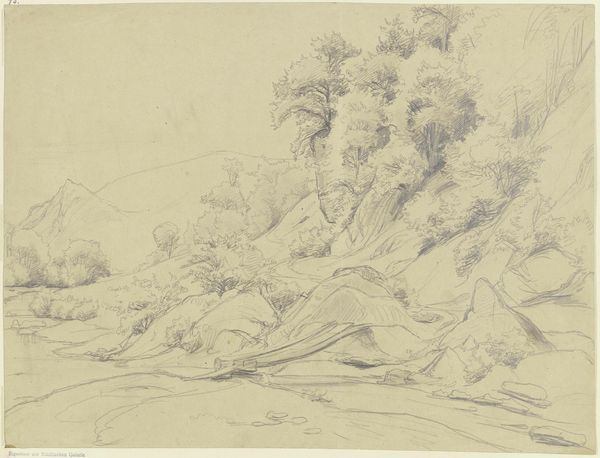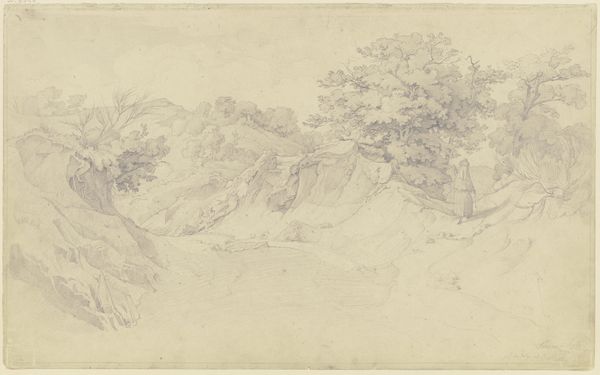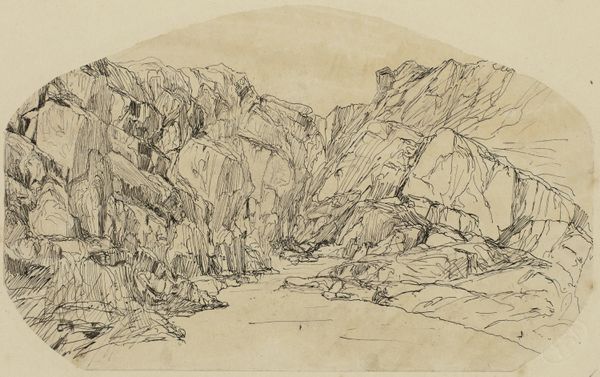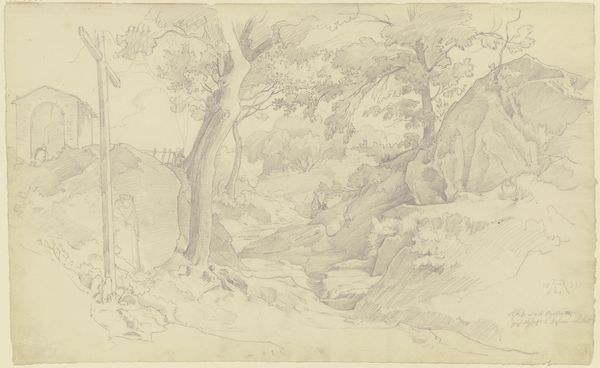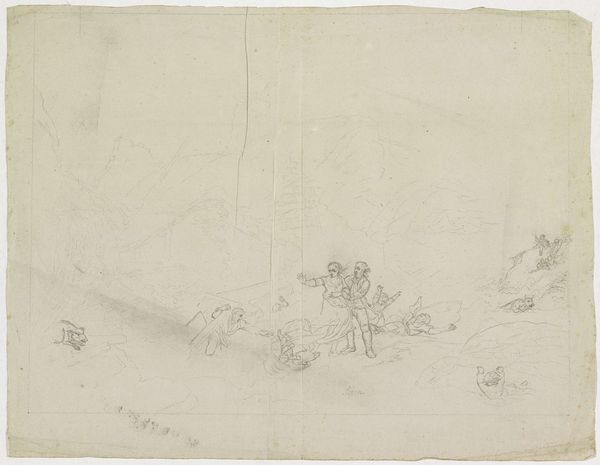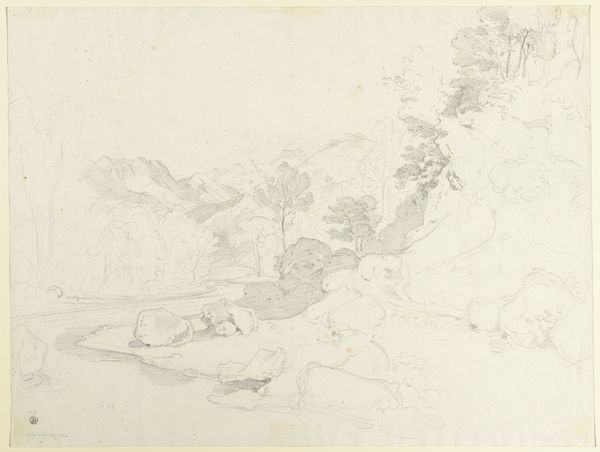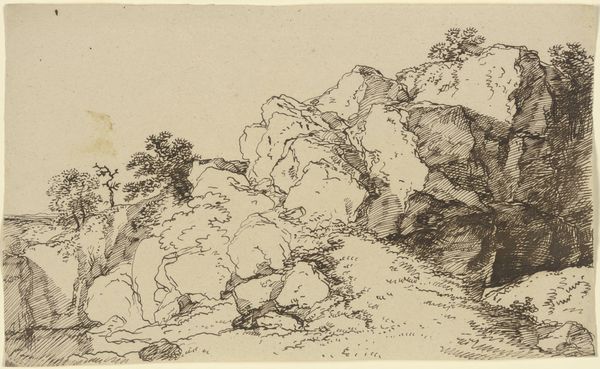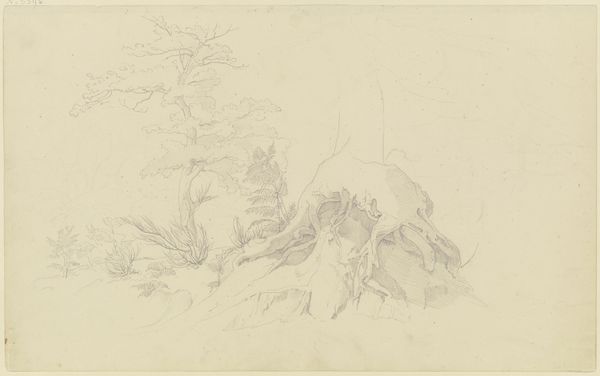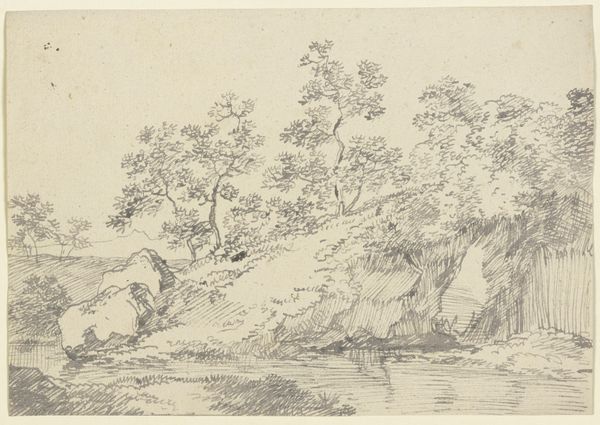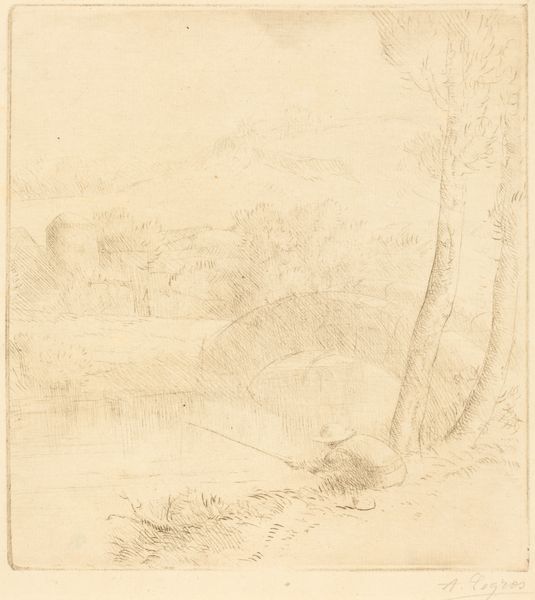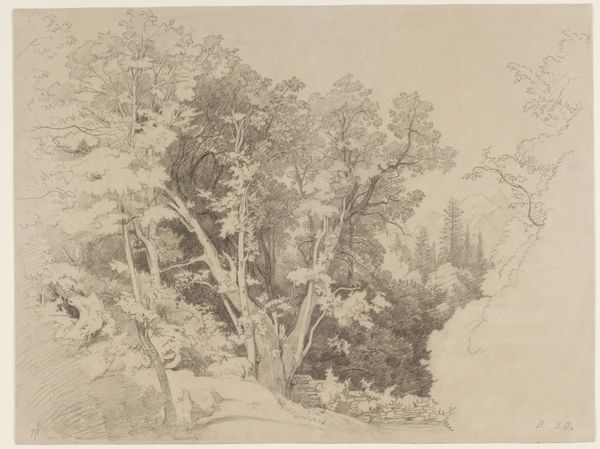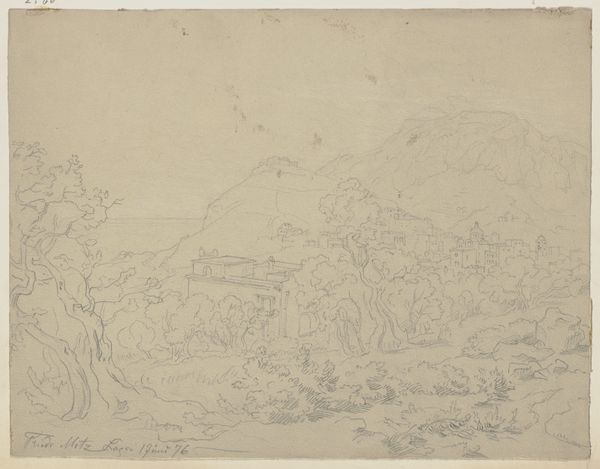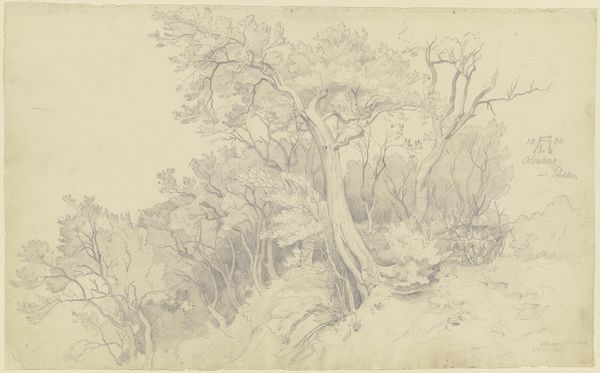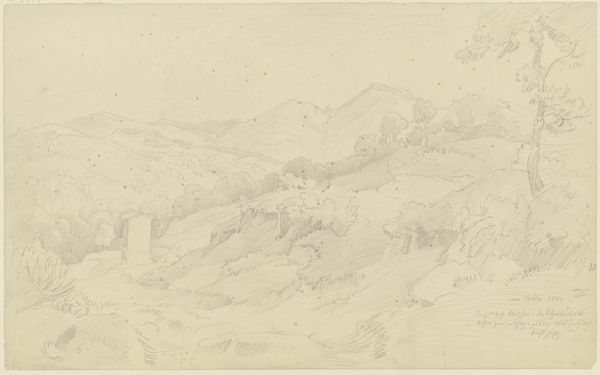
Italian Landscape (recto); Rocks and foliage (verso) 1821 - 1832
0:00
0:00
drawing, pencil
#
drawing
#
pencil sketch
#
landscape
#
etching
#
romanticism
#
pencil
Dimensions: Sheet: 13 15/16 × 18 5/16 in. (35.4 × 46.5 cm)
Copyright: Public Domain
Editor: This is Camille Corot's "Italian Landscape (recto); Rocks and foliage (verso)," created sometime between 1821 and 1832, using pencil. The pencil strokes are incredibly delicate, giving the whole scene a soft, almost dreamlike quality. What strikes me most is its seeming simplicity. How should we interpret its subtle political implications through the lens of Romanticism? Curator: That's a thoughtful observation about its seeming simplicity. Let’s consider the context. Landscapes during the Romantic period weren't just pretty pictures; they were often laden with symbolism. What socio-political tensions do you think an Italian landscape might evoke in the 1820s, particularly viewed from a French perspective? Editor: Given the time period, post-Napoleonic era and burgeoning nationalism…perhaps a longing for stability, or even a quiet yearning for an idealized past? Could the relative lack of human presence be significant? Curator: Precisely. The absence of grand narratives, like heroic figures or explicit political symbols, speaks volumes. Corot seems less interested in glorifying specific events or rulers and more focused on a quiet observation of the natural world. But doesn’t this choice become its own form of political statement? He privileges personal experience and connection to the land, which, in itself, subtly challenges prevailing artistic and political norms. Editor: So, by not depicting explicitly political scenes, he is in effect, making a statement *about* the politicized world around him? That’s really interesting. I hadn't considered landscape in that light before. Curator: Indeed. By shifting the focus from overt power displays to individual communion with nature, the artist prompts a different kind of reflection. The drawing becomes an argument for finding value outside of grand political narratives. Editor: This makes me appreciate the quiet power within the artwork even more. Curator: Absolutely. I am also now seeing Corot's statement reflected differently than before. Thank you for sharing the experience!
Comments
No comments
Be the first to comment and join the conversation on the ultimate creative platform.
